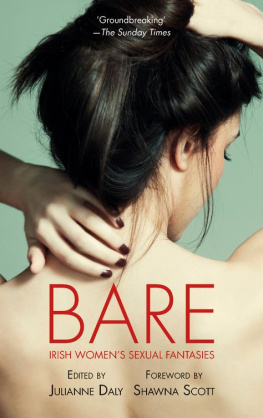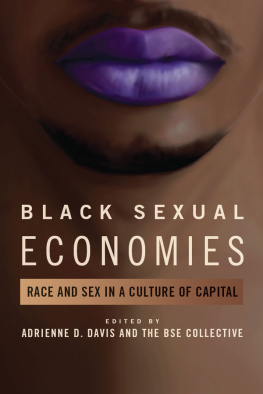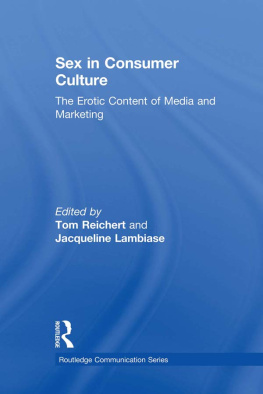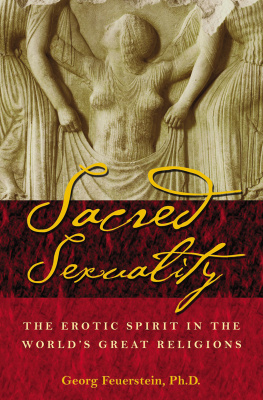The University of Chicago Press, Chicago 60637
The University of Chicago Press, Ltd., London
2017 by The University of Chicago
All rights reserved. No part of this book may be used or reproduced in any manner whatsoever without written permission, except in the case of brief quotations in critical articles and reviews. For more information, contact the University of Chicago Press, 1427 E. 60th St., Chicago, IL 60637.
Published 2017.
Printed in the United States of America
26 25 24 23 22 21 20 19 18 17 1 2 3 4 5
ISBN-13: 978-0-226-49103-5 (cloth)
ISBN-13: 978-0-226-49117-2 (paper)
ISBN-13: 978-0-226-49120-2 (e-book)
DOI: 10.7208/chicago/9780226491202.001.0001
Library of Congress Cataloging-in-Publication Data
Names: Meiu, George Paul, author.
Title: Ethno-erotic economies : sexuality, money, and belonging in Kenya / George Paul Meiu.
Description: Chicago ; London : The University of Chicago Press, 2017. | Includes bibliographical references and index.
Identifiers: LCCN 2017007062 | ISBN 9780226491035 (cloth : alk. paper) | ISBN 9780226491172 (pbk. : alk. paper) | ISBN 9780226491202 (e-book)
Subjects: LCSH: Samburu (African people)Ethnic identity. | Samburu (African people)Sexual behavior. | Sex customsKenyaSamburu. | Samburu (Kenya)Economic conditions.
Classification: LCC DT433.545.S26 M45 2017 | DDC 306.7089/965dc23 LC record available at https://lccn.loc.gov/2017007062

This paper meets the requirements of ANSI / NISO Z39.481992 (Permanence of Paper).
The material discussed in this book is drawn from English, Swahili, Maa, and German. English and Swahili are Kenyas official languages, while Maa is the language of Samburu. Most elderly Samburu spoke only Maa, but many of my other informantssome younger, educated men and womenalso spoke fluent Swahili and English. Often, my informants shifted from one language to another or mixed words from these different languages in the same sentence. I translated most Maa and Swahili sentences into English for an easier read. When I offer the Maa and Swahili versions of different words, however, I mark these respectively as M or S. In addition, when I cite German words I mark them with a G.
Oh, baby, I come from the totem of Nine Villages. Warriorsgrowlno woman can resist us.... I am a savage who understands only blood and strength. Will you save me with your tenderness? Send me money to keep my totem alive: if my totem dies, my sex power dies, baby.
Binyavanga Wainaina, Ships in High Transit
In June 2011 in Samburu District, northern Kenya, local radio station Serian FM reported that thirteen young men had beaten up elders of their clan in the highland village of Lorosoro. A man in his early twenties had initiated the fight. His name was Meikan, and he was probably one of the richest men in the area. Like many of his age-mates, he had been traveling regularly to Kenyas tourist beach resorts along the coast of the Indian Ocean, some six hundred miles southeast of his home district, to perform traditional dances and sell cultural artifacts. Also like many of his age-mates, Meikan often had sex with women from Europe and North America in exchange for money and other gifts. Recently, he had begun a long-term relationship with a Belgian woman in her late fifties. With the money he received from her, Meikan built two houses in Samburu, one in the town of Maralal and the other in Lorosoro, where his family lived. He also purchased five acres of land, opened a restaurant in Maralal, and started a cattle farm in his village. With an alarmist tone, Serian FM reported that Meikan had enlisted the help of other young men to attack the elderly men of his clan.
I learned more about this conflict a few days later, when I visited friends in Lorosoro. People there told me that Meikan had been driving his Land Rover when he noticed that his neighbor, a relative and respected elder in the village, had built a fence that slightly obstructed the path to his house. People said the young man had been too proud to discuss the issue with his relative, and instead drove his car over the elders fence, destroying it. Angered by Meikans act, the elder contacted the area chief. But before the chief arrived, Meikan had summoned his age-mates and, together with them, went to the elders house and beat him up. They also beat other senior men and women who were visiting the homestead at that time. Neighbors called the police, and the young men were taken to prison. Among those arrested was Meikans brother, Korendina, also a wealthy young man in a long-term, long-distance relationship, in his case with a woman from Scotland. Others in their group migrated regularly to coastal beach resorts, but had not yet found foreign partners who would support them with money. In criticizing the situation in Lorosoro, Serian FM pointed out derisively that beach boys are nowadays beating their elders.
In the next few weeks throughout the Samburu highlands, people commented extensively on the incident in Lorosoro. Some had heard it mentioned on the radio, others by way of gossip. They considered the deeds of the young men an outrage, and their lack of respect for elders a sign of eroding moral values. Samburu and other Kenyans saw elders as repositories of cultural wisdom and moral authorities in matters of rural life. Living in rural communities meant, in one way or another, respecting elders and, to some extent, obeying them. But the man that Meikan and Korendina assaulted was not only an elder. He was also a member of their immediate family, the son of their fathers brother. In Samburu, patrilineal descentthat is, relatedness traced through fathersplays a dominant role in how people relate to each other. In this context, the offspring of ones fathers brothers (what anthropologists call paternal parallel cousins) are, in fact, ones own brothers (M: lalashera) and sisters (M: nkanashera). So from a local perspective, these men committed a double affront: not only had they disrespected an elder, but they also turned against the closest of kin.
They want to show off how big they are, Jackson, a man from Lorosoro, complained to me of Meikan and Korendina. When these guys were poor, the father of that elder [that they had beaten] had helped them very much. He had been a soldier in the army. He used to give them small jobs to herd his cattle, and he gave them money. Recalling a history of indebtedness, Jackson suggested that young mens sudden access to cash allowed them to forget past debts and, therewith, future moral obligations to their comparatively poor, rural relatives. Some rural men and women I spoke to emphasized that young men like Meikan and Korendina, who amassed wealth through relationships with foreign women, returned to their home areas with styles and ambitions that others considered undesirable. Not only did these men use their resources to override the authority of elders and kin, locals said, but they also conspicuously consumed the money they had obtained through sex. Some Samburu saw such money as a polluting, unpropitious kind of wealthmoney of wrongdoings (M:









 This paper meets the requirements of ANSI / NISO Z39.481992 (Permanence of Paper).
This paper meets the requirements of ANSI / NISO Z39.481992 (Permanence of Paper).